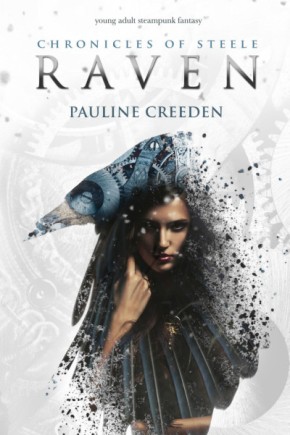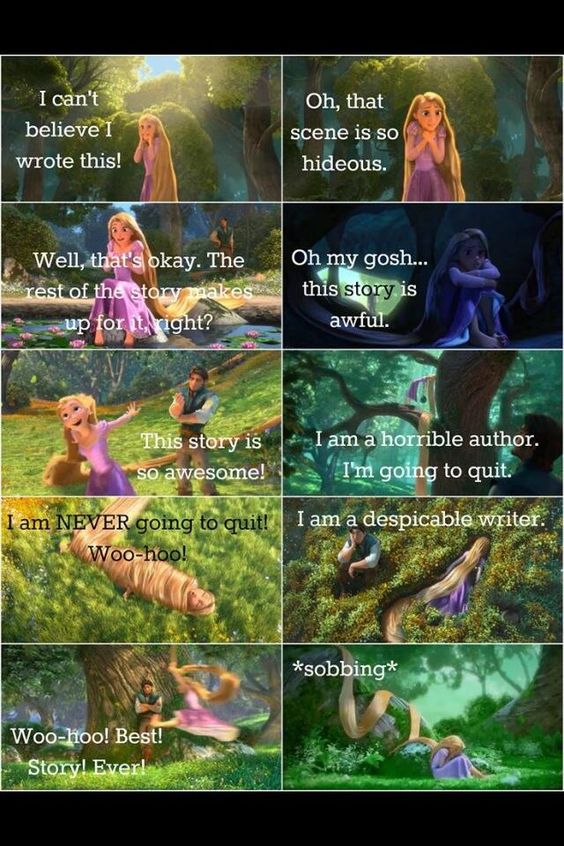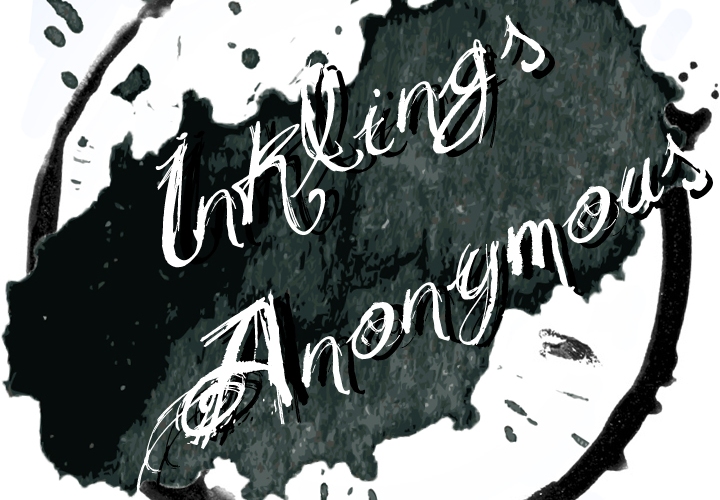I’ve been writing since I was a little girl. Mostly, I would just draw pictures and follow my mother around the house and tell her the stories I’d come up to go along with them and be ecstatic when they went on the fridge. I was also a voracious reader, but I was never content to only read; I always wanted to create. I didn’t know what writing was, really; I just knew I had stories to tell.
Writing wasn’t about plotting or world building when I was young; I just wanted to put all my ideas down.
I used to write stories for my friends and then leave them on cliffhangers for weeks while I figured out what came next.
In high school, I was the editor for the paper and wrote several articles. I created “Stickman! The Series!” which was an ongoing comic I passed out to various people in my classes. It was filled with dark humor and constantly skirted the safety of a PG-13 rating in every issue. By the end of my senior year, I was making a handful of photocopies in the library because people I’d never even met before had read it and wanted more.

“Hello dear sailor, I’m a siren, here to kill you.”
“Kill me? Why?”
“It’s what I do. I gotta be me.”
(10th grade humor. You’re welcome.)
But through all of this, I never once had much doubt about my ability to write. It was just something I did.
Writing was as much a part of me as breathing. But without knowing why, I knew I wanted to get better. So I started researching how to write. And this is where I hit my first real hurdle and my lack of skills became self-evident. My talents were raw; they were unformed clay next to master sculptures. I saw the divide, and for the first time, it bothered me that I wasn’t a better writer. It was like seeing color when I never even knew I was colorblind to begin with. But I was still excited to dive in and learn, so I did. I started reading everything I could find on how to be a better writer.
But the more I learned about writing, the harder it became to write. As technical concepts starting taking root, it felt like my knowledge was actually ruining my ability.
Before, I wrote what I wanted, completely in the dark as to whether it was good or not. But the more I took in, the less the words seemed to flow.
No one ever tells you that self-doubt isn’t just a natural instinct you get handed the first time you put a pen to paper. It’s a creeping sensation that comes out of nowhere. Like walking into a classroom you’ve been in a hundred times before and realizing that something seems different. The desks have been rearranged. You’re not by the window anymore. You have a new seating chart and your buddy is this prick that constantly asks what you’re working on and then compares it to everyone else’s work to make you feel bad.

And when you start to understand the technicalities of what you’re doing (or not doing, as the case may be), writing isn’t “easy” anymore. It’s not comfortable. It’s not fun. It’s a jerk that looms over you and keeps whispering, “Just quit already.”
So what happened? How did you get dejected from Paradise and sent crashing into this new world? Are you actually a bad writer?!
The moment you become self-aware, your brain is not going to take it easy on you. Suddenly, all those books you loved before aren’t just for you to enjoy. They’re also a model of everything that you aren’t, and that you may never be. And when you compare yourself to them, you’ll feel incredibly foolish for even trying.
By the time I graduated, I was exhausted from “creating” on demand. I shelved many of the books I’d started because I literally got sick of them. I was tired as hell of writing. I had more doubts about my abilities than when I’d started. I was scared of what would happen when I actually finished my novels. When I tried to publish. Would everyone hate it? Would they tell me that my efforts were incomprehensible garbage?
This fear compelled me to quit writing for a little while. I threw myself into work instead and got a position as an editor with several indie publishers. I doubted myself for choosing writing as a college major. I wrote only enough to keep the hinges oiled, and considered jobs outside of my field. But then I got a job with an online magazine as an editor and writer. Inside, I hoped the writing portion wouldn’t come, and for a few months, I got my wish. I was a writer who was afraid to write. The fear of how I would be received had crippled me.

The first time I was assigned an article, I had a full-blown panic attack. I had to get up and walk away from the computer because I was petrifiedof writing again, especially for a widespread audience. My biggest writing credits at this point were publications in my college newspaper and some minor poetry anthologies.
But I knew, under the fear, that I wanted to do it. And that I wasn’t going to let anyone—least of all me—ruin it. I decided, pass or fail, it wouldn’t be because I gave up.
I wrote the article. It took hours. I hated every minute of it. I was convinced it was the worst drivel I’d ever produced. But when I was done, I realized that I’d written. I’d gotten through it, and I could breathe again. Sending it in to the editor was like a weight lifting off my chest. Then came the next assignment. And the next. And before I knew it, I was writing 4-5 articles a day on a variety of topics. And so I stopped focusing on the technical aspects of how to “craft” everything. I focused instead on the writing. I had a job to do; I had to produce. So even if it still terrified me, I did it.
Before I knew it, I had written over 200 articles.
And while this was going on, I discovered the drive to just sit and write. I stopped self-editing so much; stopped telling myself I couldn’t do it. I let the technical aspects I’d learned guide me, but I put down the story I wanted to tell (reminding myself every time that I could edit later), and suddenly, writing was happening again.
I think I repeated Terry Pratchett’s quote, “The first draft is just you telling yourself the story,” like a mantra, whenever I felt like I couldn’t make it.

In late 2015, two years after graduation, I finished writing my first soft sci-fi novel, Mercury in Retrograde. I edited it for months, waffled on my resolve, and then finally wrapped it up and researched query letters. And even though I felt that same doubt that said I wasn’t any good, or that no one would like it, I sent it out. I cried because I thought it was the dumbest thing I’d ever done.
Just over a year later, it was published. And just over a year after that, it got silver in a book awards contest. And even now, knowing what I know, the voice in my had still tells me that it’s not good enough. That I’m not good enough.
The hardest part of writing is the deceptive idea that it should be easy. That it should always feel fun, and that if you’re struggling, it’s because you’re a hack. But this simply isn’t true.
Writing is an exercise. A mental one, sure, but you’re working out muscles you may not even know you have yet. It’s going to hurt quite a bit before it gets better. And just like anything in life, you can either use it to make you stronger, or you can cave in and let it smother you.
Don’t focus on your fears. Focus on what you can control. Don’t wait for inspiration; make inspiration happen. Sit down, write that novel.
Don’t worry about what people will think of your book. Write the story that you want to tell; edit it later.
The voice in the back of your head is never going to be satisfied, even when you exceed what you thought was ever possible.
So don’t let it stop you.








 Here, I’ll include an image. Gorgeous, eh?
Here, I’ll include an image. Gorgeous, eh?










You must be logged in to post a comment.